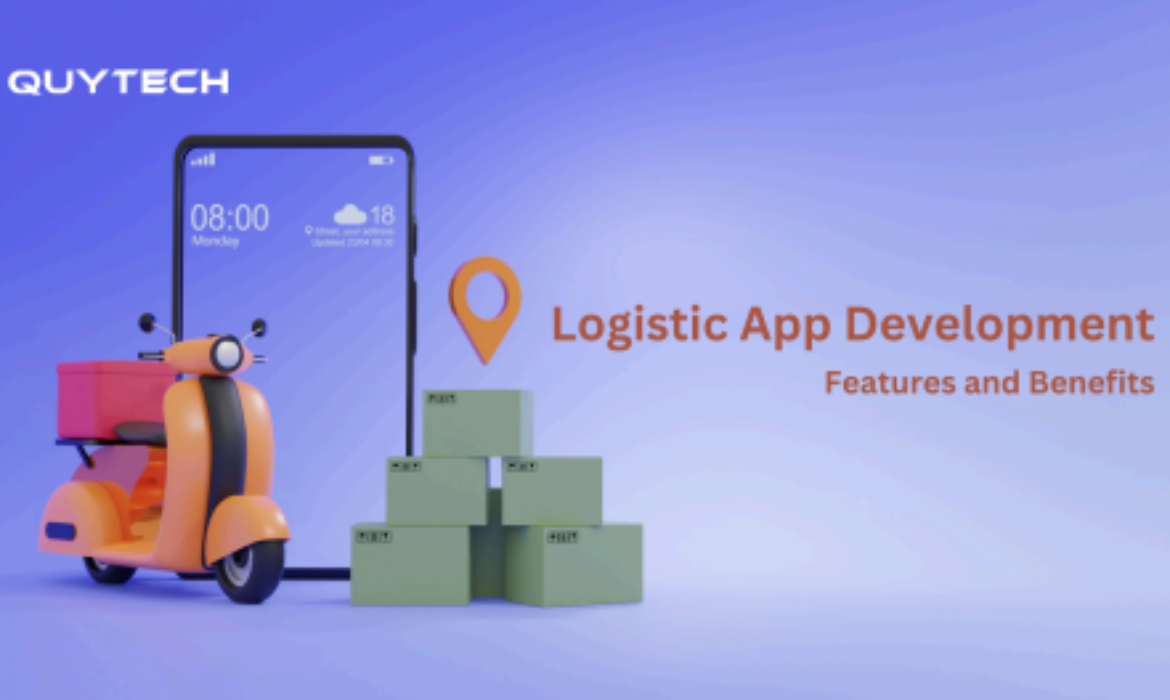
Logistics plays a vital role in ensuring efficient movements of goods, timely deliveries, and managing inventories of various industries.
Managing logistics could be a difficult task for many business owners and their teams. However, with a feature-rich logistics app, they can easily manage logistics, streamline operations and enhance overall productivity.
Therefore, this blog tells you the step-by-step process of building a logistics app, along with its top features and benefits of developing it. So, read it till the end to gain some valuable insights.
Step-By-Step Process to Develop a Custom Logistics App
The following is the step-by-step process to build a custom logistics app tailored to specific requirements.
1. Determine the Requirements
The first step is to define the app’s purpose, key functionalities, areas of operations (whether it be used for shipment tracking, inventory management, or both), and technologies to be added to the app.
2. Set up the Development Team
To develop a logistics mobile app, you will require extensive knowledge and experience in app development. Hence, it is important to hire app developers to set up a development team that can build your app.
Moreover, you can also project to a leading logistics app development company and they will create the app professionally for you.
3. Design the UI/UX
After setting up the development team, start working on designing the user interfaces of the logistics app. You must design the UI focusing on the ease of use, navigation, and aesthetics of the overall app.
Always create a user-friendly and visually appealing UI for the app to ensure enhanced user experience.
4. Develop the Logistics App
Once the designing is done, begin with developing the frontend and backend infrastructure of the logistics app. Build the server-side components like databases, APIs, and business logic.
Also, integrate third-party APIs, such as GPS, payment gateways, and messaging systems.
5. Testing and Quality Assurance
Post-development, test the logistics mobile app to ensure that it is bug-free, secure, and functions as per expectations.
You can also deploy the app in a closed environment to check its functionalities and gather relevant user feedback.
Based on this feedback, make the necessary changes and get ready for the next step.
6. Deployment
After testing, deploy the app and make it available for the users. You can publish it on the App Store and Play Store, following their respective guidelines.
7. Post-Launch Maintenance
Track the app’s performance and fix issues and bugs that would arise after some time.
Moreover, you need to release new versions of the logistics app and upgrade it with new features and functionalities to enhance user experience and the app’s performance.
Now, let’s explore the features to add to a logistics mobile application.
Top Features to Add to the Logistics Mobile App
The following are the top features to integrate into a logistics mobile application.
1. Real-Time Tracking
Integrate with GPS technology, this feature allows to monitor the status and location of shipments accurately.
2. Route Optimization
You can leverage artificial intelligence development services to integrate the route optimization feature, analyze the traffic, weather, and other factors, in real-time, and suggest the most efficient routes, ensuring timely delivery.
3. Inventory Management
AI-powered feature to track the stock level and order statuses to ensure optimal inventory controls.
4. Order Management
A user-friendly feature to streamline order processing and updates across multiple channels.
5. Push Notifications
This feature sends real-time alerts to stakeholders about order confirmations, shipment updates, and delays.
6. Analytics and Reporting
It provides data-driven insights allowing stakeholders to make informed decisions.
7. Security and Compliance
This ensures that the data is protected with encryption, secure logins, and compliance with industry standards.
Therefore, these are the top features that you can add while developing a logistics mobile app.
Benefits of Developing a Logistics Mobile App
The following are the advantages of building a logistics mobile app.
1. Enhanced Efficiency
The major benefit of developing a logistics app is that it helps in enhancing productivity and efficiency.
Logistics manpower can use the app to manage orders, shipments, inventories, and route optimization efficiently, with very little effort.
2. Improved Customer Experience
Another advantage of building the logistics app is that it enhances customer experience.
Customers can use the app to stay informed about the shipments, track them in real-time, and get notified about the delivery status.
This transparency contributes to uplifting customer satisfaction and loyalty.
3. Increased Visibility
A logistic app provides increased visibility into the entire logistics process. Whether it is tracking shipments, monitoring inventory levels, or analyzing performance metrics, businesses can do these all using a custom logistics app.
This visibility allows logistics businesses to identify and manage potential risks and ensure smooth operations.
4. Scalability
As businesses grow, their logistics needs evolve. Hence, a scalable logistic app can adapt to changing requirements, whether it’s handling a higher volume of orders or integrating new features.
It ensures that the business can continue to meet its logistics requirements efficiently.
5. Better Decision-Making
With real-time data and analytics features, a logistics app helps businesses make informed decisions to improve their operations.
Data insights from the app help strategists identify the loopholes, and further plan to tackle various logistics-related challenges.
6. Competitive Advantage
A logistics mobile app helps businesses improve efficiency and customer satisfaction through innovation.
A business having a logistics app loaded with cutting-edge features and functionalities can easily differentiate itself in the market, attract new customers, and stay ahead of industry trends.
Summing Up
Developing a logistic app is a strategic investment that offers numerous benefits, from enhanced efficiency and cost savings to improved customer experience and better decision-making.
By developing a custom logistics mobile app, businesses can streamline their logistics operations and stay ahead in a competitive market.
Therefore, it is the right time to develop an app using the guide given in this blog, or contact a top mobile app development company and build a logistics app tailored to specific requirements.



